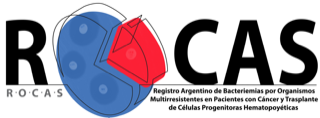Bacteremias are the most frequent microbiologically confirmed infections in patients with cancer or with hematopoietic stem cell transplantation (HSCT). These patients usually have a severe immunosuppression caused by chemotherapy, radiotherapy, corticosteroids, purine analogs, monoclonal antibodies and immunotherapeutic agents; also by the presence of neutropenia, graft versus-host-disease, and the underlying disease itself. For this reason, bacteremia is a particularly serious complication, being associated with prolonged hospitalization, higher healthcare costs, and significant mortality.
The etiology of bacteremias in this population is a changing phenomenon over time and in different regions in the world, reporting a significant increase of multi-drug resistant organisms (MDRO). In Argentina, several centers have reported an alarming increase in multi-drug resistant Gram-negative Bacilli (MDR-GNB) as etiological agents, particularly Enterobacteriaceae-producing extended-spectrum Beta-lactamase (E-ESBL), Carbapenem-resistant Enterobacteriaceae (mainly KPC-Carbapenemase-producing Enterobacteriaceae), and multi-drug resistant Pseudomonas aeruginosa (MDR-PA).
Bacteremia-related mortality with any of these microorganisms is very high because the treatment options are limited, patients are severely immunocompromised, and begining of appropriate empirical antibiotic treatment is often delayed.
Therefore, at present, the challenge in the era of multi-drug resistance is to be able to identify patients at risk, according to the presence of clinical and epidemiological factors that allow an individualized therapeutic approach.
